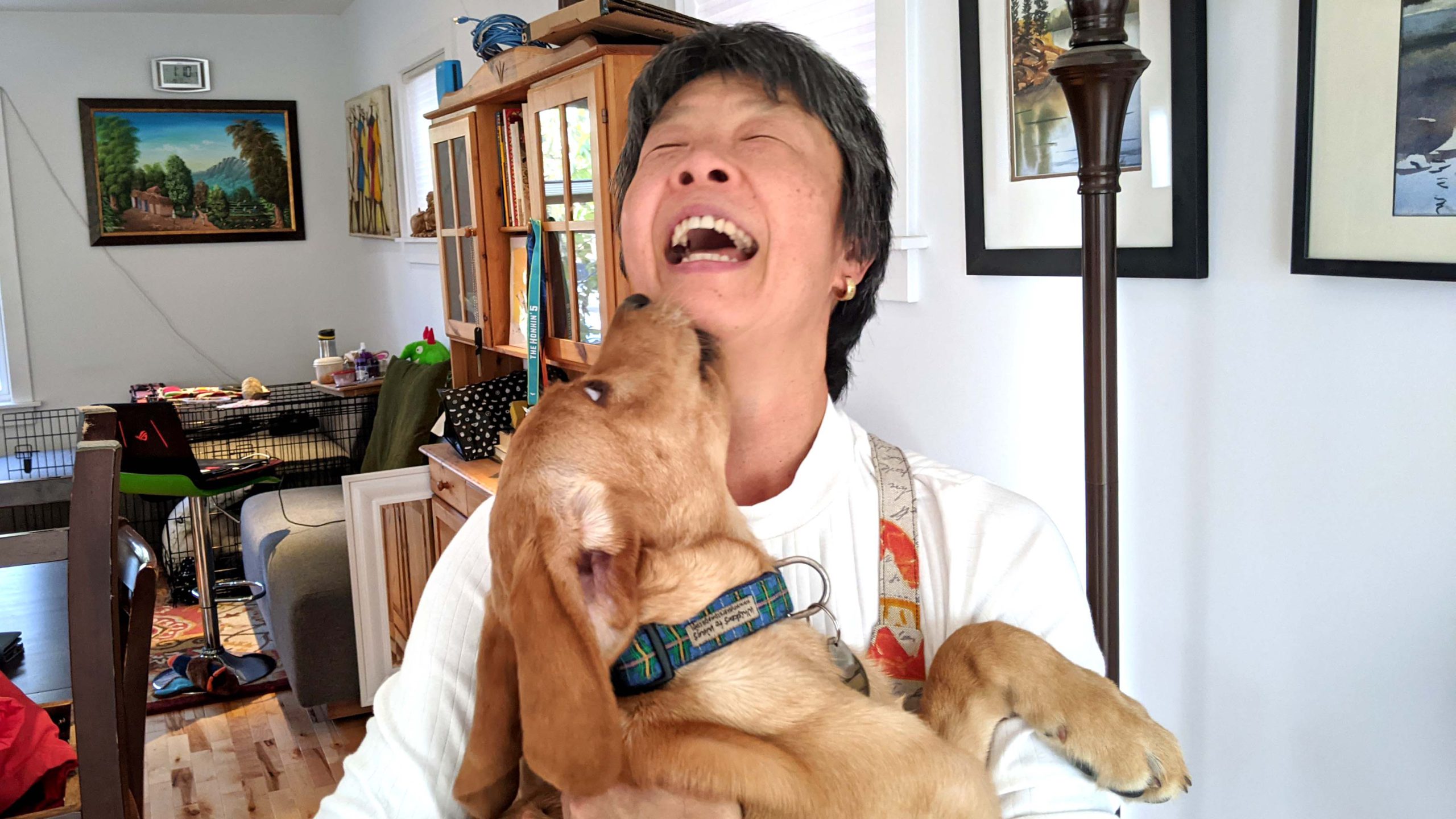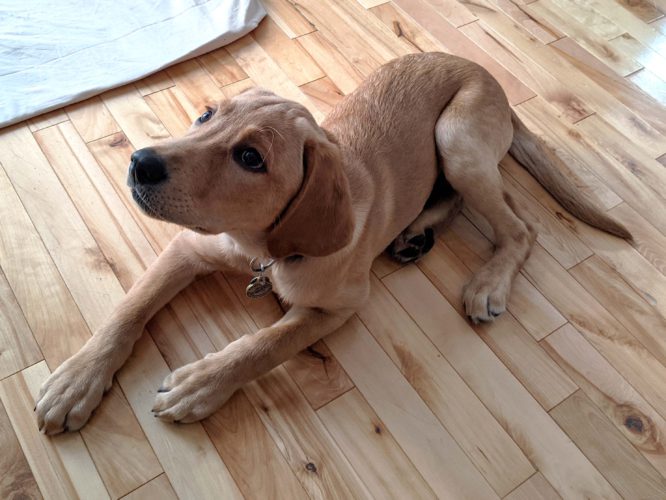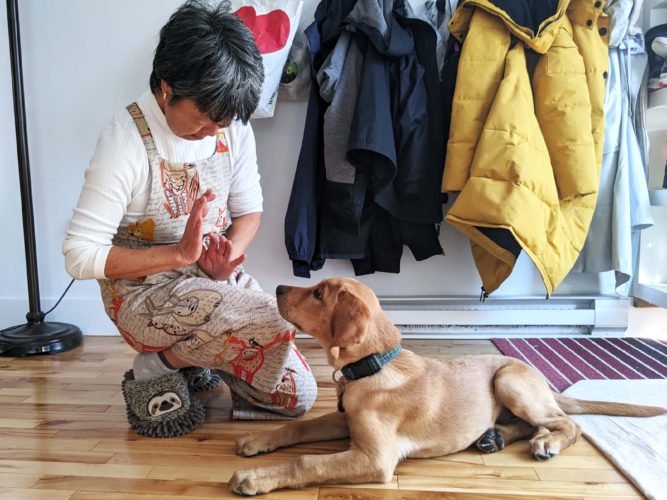Halifax puppies learn new tricks with volunteer guide dog trainers
CNIB says applications for guide dogs have gone up 300 per cent over the pandemic

caption
Yuko Imai holds Trapper, her third puppy she has raised for the CNIB.In many ways, Trapper is a regular puppy.
Yuko Imai, his trainer, has wrapped her table legs and cupboard corners with towels so he can’t chew on them. His toys are scattered around her floor. When he looks up, his big eyes beckon for pets and treats.
“He’s very smart, except that he’s afraid of dog barks. So, I have to train that out of him,” Imai said.
Trapper, three months old, is one of five new puppies the Canadian National Institute for the Blind has recently brought to Halifax as guide dogs in training. Applications to be paired with a guide dog have gone up 300 per cent since the start of the pandemic, according to a CNIB news release.
Laura Kennedy, apprentice puppy raising supervisor with the CNIB, said one reason for the increase in applications is that many Canadians with vision loss went to the United States to get a guide dog before the pandemic.
The CNIB used to source their guide dogs from a breeder in Australia, but getting the dogs to Canada became too difficult with pandemic travel restrictions, Kennedy said. After some searching, they found a breeder in Ontario where Trapper and the four other puppies in Halifax came from.
“I know our puppy raisers who have puppies now were waiting almost two years or so,” Kennedy said.
“So we’re starting to work with some different breeders and we’re hoping to have our own breeding program in the somewhat near future.”

caption
Trapper is three months old. If all goes well with his trainer, he will go to the Canine Campus in Carleton Place, Ont., when he is about 15 months old.The CNIB is calling for more Haligonians to volunteer as a puppy raiser as more dogs are planned to arrive in the city. The guide dog program is important because having a guide dog can be “empowering” for people with vision loss, Kennedy said.
“People tend to come up to individuals with guide dogs to talk to them, to ask them about their dog, and people just don’t do that when you’re walking with a white cane,” Kennedy said.
Trainers like Imai have to keep key things in mind when handling future guide dogs. For example, the puppies must learn to relieve themselves on command, so that their future owner can know when to clean it up. They are also not allowed on any furniture or seats in case they create access issues for their owners in taxis or Ubers.
After training with the volunteer puppy trainers for around 15 months, the dogs go to the CNIB’s Canine Campus in Carleton Place, Ont., where they complete their training. Not all puppies trained for the program end up paired with an owner with vision loss.
The program’s specific requirements mean some dogs have a change in “career path,” says Kennedy, and go on to a different support program or they might become pets.

caption
Yuko Imai trains Trapper with basic commands such as ‘down.’Imai said she enjoys being able to contribute to a good cause now that she is retired and has more time to volunteer.
“People mention, ‘Oh, you’re doing such a great thing, it’s so generous of you to donate your time,’ but I like donating my time for puppies. So, it’s mutually beneficial,” she said.
Imai said that training guide dogs has helped her learn in a small way what life can be like for someone with vision loss.
“When you’re going to places and you think OK, if I couldn’t see this, even with the guide dog it would be really awkward,” she said. “So, it does give you like a new insight into what it is to be blind.
“In that way, I think this has been a great experience for me, not just the dog.”
Trapper is the third puppy Imai has trained for the CNIB. She got her first puppy, Rhonda, in 2018. While the experience is rewarding, she said it can also be difficult when the puppies have to leave.
“We cry a bit,” Imai said. “I mean, we are told from the get-go, this is what’s going to happen. So, you sort of brace yourself for it. Eventually, it’s gonna happen. It’s still sad, but they’re going off to do good work.”
About the author
Victoria Welland
Victoria is a journalist with The Signal at the University of King's College. She is also a member of the news team at CKDU 88.1 FM. Originally...
